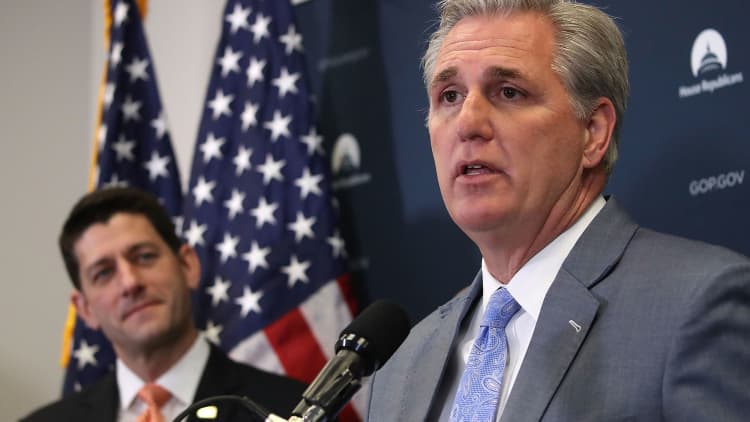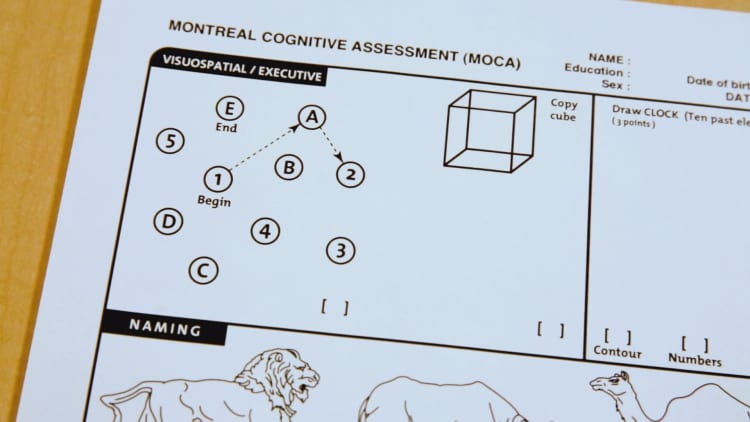
New York Attorney General Eric Schneiderman on Wednesday asked state legislators and Gov. Andrew Cuomo to close a loophole that could let recipients of pardons for federal crimes from President Donald Trump avoid state criminal charges.
Schneiderman said he was asking for the loophole to be eliminated because of "disturbing news" that Trump "may be considering issuing pardons that may impede criminal investigations."
Shortly after Schneiderman made his request, state Sen. Todd Kaminsky, a Democrat and former federal prosecutor who represents a district on Long Island, announced he would introduce a bill seeking to accomplish the attorney general's goal."

Schneiderman, a Democrat, is a long-time antagonist of Trump. Shortly after the presidential election in 2016, he obtained a $25 million settlement for customers of Trump University who claimed to have been swindled by that entity.
Last summer, it was reported that Schneiderman was working with prosecutors from special counsel Robert Mueller on their federal investigation of Trump's former campaign chief, Paul Manafort.
Mueller is conducting a broad investigation of Russian interference in the presidential election and possible collusion with Russians by Trump campaign officials.
Last week, federal prosecutors in New York City had FBI agents raid the office and home of Trump's lawyer Michael Cohen as part of a criminal probe of Cohen.
Presidents can pardon people only for federal crimes. Trump did so last week, pardoning Scooter Libby, former chief of staff for Vice President Dick Cheney, for obstructing justice, perjury and lying to the FBI.
But pardons, as a rule, do not prevent people from prosecution or punishment for violating state criminal laws.
However, Schneiderman, in a letter to Cuomo and legislative leaders, said that "a strategically-timed pardon [from Trump] could prevent individuals who may have violated our State's laws from standing trial in our courts as well."
The timing would involve issuing a pardon to someone after they pleaded guilty to a federal crime, or after a jury was sworn in for a criminal case going to trial.
New York law bars someone from being prosecuted in state court if that person has already been prosecuted elsewhere for the same acts. That is known as a protection against so-called double jeopardy.
But Schneiderman said there is a "problem" under Article 40 of the state's Criminal Procedure Law.
Under that law, he wrote, "jeopardy attaches when a defendant pleads guilty or, if the defendant proceeds to a jury trial, the moment the jury is sworn."
"If any of those steps occur in a federal prosecution, then a subsequent prosecution for state crimes 'based on the same act or criminal transaction' cannot proceed, unless an exception applies," Schneiderman wrote.
Those exceptions occur when an appeals court nullifies a prior criminal proceeding, or when a federal court voids a federal conviction because prosecutors failed to establish an element of the crime that is not an element of a New York crime, Schneiderman wrote.
"But there is no parallel exception for when the President effectively nullifies a federal criminal prosecution via pardon," he wrote.
"Simply put, a defendant pardoned by the President for a serious federal crime could be freed from all accountability under federal and state criminal law, even though the President has no authority under the U.S. Constitution to pardon state crimes," Schneiderman wrote.
He added that the New York state legislature "could not have possibly intended this result."
Schneiderman asked the legislature to pass an amendment to state law to prevent the scenario from happening.
Sen. Kaminsky, who plans to introduce that amendment, in a statement said, "The Double Jeopardy loophole allows criminal behavior to go unpunished in our state and needs to be closed."
"The writers of our state's strict Double Jeopardy statute did not take into account the President's pardon power, and certainly did not contemplate the capricious use of that power to undermine the rule of law," Kaminsky said.
WATCH: Trump's doctor says he aced his mental fitness test. Here's how hard it really was



